Вы здесь
Sights of Turgusun Valley.
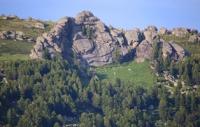
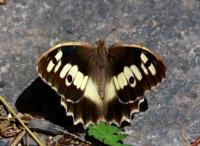
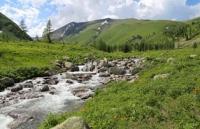
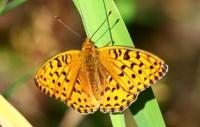
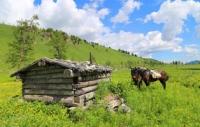
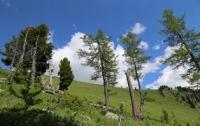
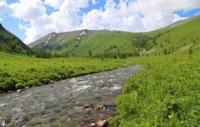
Tours to Turgusun River Valley.
"Altai, a giant from a crowd of clouds,
In winter and summer, in the clothes of snows,
You stand guard over vast expanses
You make a snow-white song of the ramparts"
Saken Sayfullin.
Trekking to Turgusun lakes.
Turgusun is a mysterious word with a secret meaning, which you can solve only by visiting this fabulous gorge. The word is clearly of Dzungarian origin, like many other names for the Altai rivers. Some explain the word as “fast water,” others as “the river of an angry bull.” Since ancient times, Altai hunters wandered here through taiga gorges, which they called either Kalmyks, Oirats, or Shors.
Then, from the XVIIIth century, Russians came here, villages and even the mining town Zyryanovsk arose along Bukhtarma. Apiaries appeared in the gorge itself, since the Altai forbs gave the winged toilers a rich harvest of nectar.
In the mountains, overgrown with wild taiga, game, fur-bearing animals abounded. Overgrown with red beards, Russian industrialists built hunting huts for squirrels (as the tops of mountains and ridges are called here), mining precious sable furs, otters, and ermines.
If Altai is famous for its beauties, then first of all they recall Lake Teletskoye, Chuysky Trakt, Kazakhstan Altai is widely known for Lake Markakol, the vicinity of Katon-Karagai, and the foot of Belukha. Nobody remembers the surroundings of Zyryanovsk.
Meanwhile, in the depths of the local mountains: the ranges of Kholzun, Ulba and Listvyagi, wonderful taiga corners are covered with silvery fast rivers, waterfalls, canyons and cliffs of mighty rocks that are not inferior in picturesqueness to the best Alpine areas.
Unfortunately, few people know about this. Very rarely there are Russian and Kazakhstan tourists, and only their own - the Zyryanovites and sometimes the Ust-Kamenogorsk people come here to fish. But Turgusun is a sin to complain about obscurity.
In the late XIX, early XX centuries, the French concessionaires, who undertook to develop the Zyryanovskoye field, decided to build a hydroelectric power station on Turgusun. However, the wayward river swept away the dumped dam in the first flood.
Later, Soviet specialists rebuilt the hydropower plant in the 1930s, and it worked until the end of the 1950s when the giants entered the system: the Ust-Kamenogorsk and Bukhtarma hydropower plants on the Irtysh.
And the remains of that building now stand among the taiga, attracting the attention of tourists and being one of the few preserved monuments of local history. At the end of the 1920s, Valerian Pravdukhin, a friend of Novikov Priboy, an avid hunter, apparently hurt by the tales of another passionate hunter and Altai Efim Permitin, came to Altai to hunt bears, and chose this (without a doubt, on the advice and hint Permitina) there are only two places: Turgusun and Lake Markakol.
As a result, a wonderful book was published, “Years, Trails, and a Gun” (now almost forgotten). Another living local writer, Alexander Ivanovich Egorov, comes from the village of Kutikhi in the Turgusun village (once there were bearded peasants selling aromatic Altai honey to Semipalatinsk and Omsk merchants.
The barrels then rafted down Bukhtarma and Irtysh)) cannot forget their native places. A well-known editor who worked for many years in Kazakhstan’s publishing houses, he sold an apartment in Almaty for a pittance (in 2000 a two-room apartment in Almaty cost $ 4,000) and with this money published a wonderful book about his childhood in the mountain apiary “Taiga Recluse”.
And this book of his is not the first about his native river. Prior to this, he wrote a poem, a story about Turgusun, "The Valley of Birch Mists." Now a 85-year-old, but very young-minded writer, he bought his grandmother’s house in an almost abandoned Kutiha, keeps an apiary, goes fishing and, possessing irrepressible optimism, promises to live up to a hundred years.
His books are a declaration of love for the native land, poetic stories about beekeepers, taiga people, and fishing. Interestingly, another Kazakhstani writer Krivosheev emerged from the same tiny Kutiha. As you can see, the beauties of Altai nature encourage people to take up a pen.
Turgusun Gorge is somewhat different from the neighboring mountain valleys and resembles the most picturesque corners of the Tien Shan. It is quite narrow, which is not typical of most tributaries of Bukhtarma, does not form a wide river floodplain and steeply.
At the same time, Turgusun is a typically Siberian mountain river with rich Siberian flora and fauna. If the Tien Shan highlands are somewhat monotonous only with a strict Schrenka spruce (which is also Tien Shan), then in Altai the mountain taiga includes several conifers that differ in such an exceptional variety of forms that you will not find two similar trees.
Authority:
Alexander Lukhtanov. "Essays on the nature of the Kazakhstan Altai."
Photos
Alexander Petrov.







